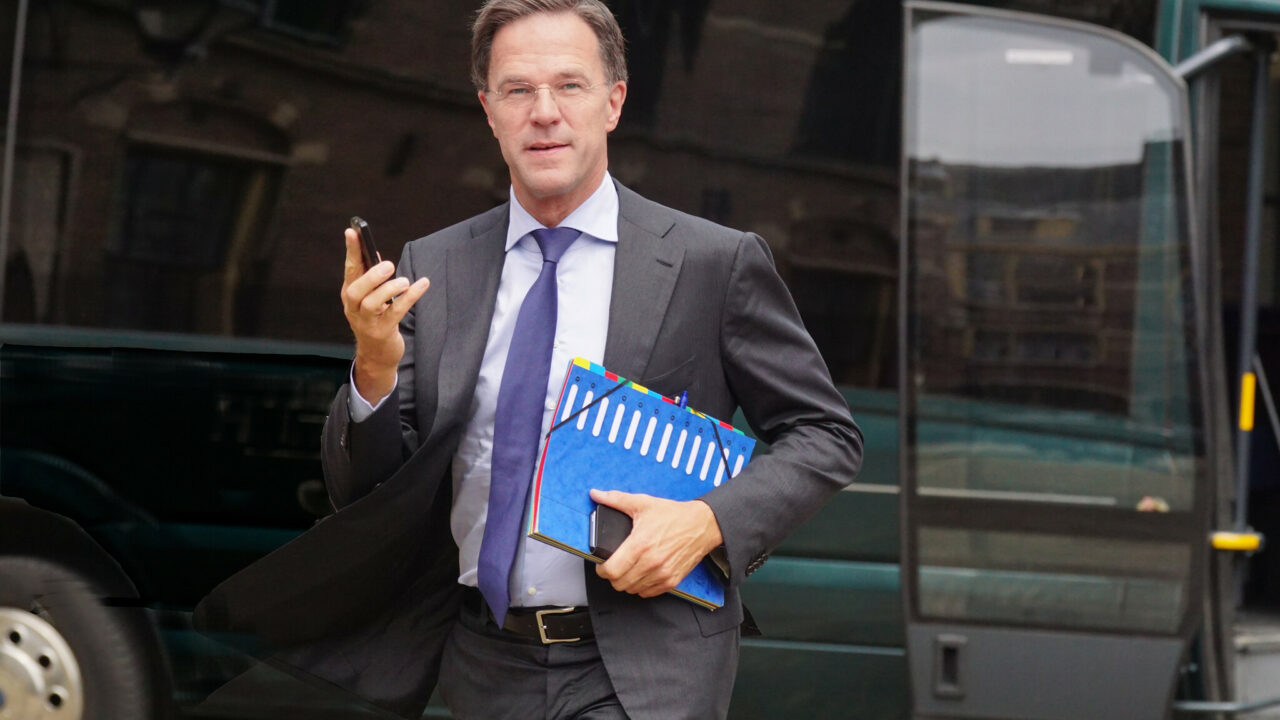Back again: The Netherlands’ ambitious new government
There are clear signs that the Netherlands is willing to significantly strengthen EU cooperation in several policy areas where it once showed resistance
“Europe, we’re back!” tweeted Dutch MP Sjoerd Sjoerdsma in reaction to the December 2021 agreement to form the Netherlands’ new coalition government. But was he right to be so optimistic?
After the longest coalition negotiations in the country’s history, the same four parties that formed the preceding government will remain in power. The new government, the fourth led by Prime Minister Mark Rutte, comprises his People’s Party for Freedom and Democracy, Democrats 66 (D66), the Christian Democratic Appeal, and the Christian Union. The coalition agreement promises a constructive, intensified Dutch contribution to the European Union.
The agreement first mentions the EU in its section on international politics. In contrast, the 2017 coalition agreement referred to “Europe” (rather than “the EU”) only after covering foreign policy, defence policy, and development aid. Even if one considers this to be a trivial detail, there are several reasons to think that the new government will prioritise the EU more than its predecessor did.
Firstly, the new government aims to take a leading role in making the EU “more decisive, economically stronger, greener, and safer”, as the agreement puts it. This sounds very different to the previous agreement’s far more passive call for “a more active approach on the part of the EU”. Brexit has forced the Netherlands to take a more assertive stance in the union. Traditionally, the United Kingdom was a helpful partner in lining up against EU member states that planned for big spending. The New Hanseatic League and ‘frugal four’ – coalitions that include the Netherlands and other fiscally conservative member states – have formed to defend a policy of low national debt and to prevent the creation of a transfer union in the post-Brexit EU.
After a long (and damaging) diplomatic struggle, the Netherlands accepted the need for the EU’s ‘corona bonds’. And it now seems that the Dutch government has also become more willing to accept higher national debt and to consider modernising the Stability and Growth Pact. For a long time, that was unthinkable.
The country’s traditional position on these issues seemed to become untenable following the onset of the pandemic, which prompted a sharp increase in EU member states’ public spending and debt. Like Germany under its new government, the Netherlands is now willing to at least consider fiscal reform – albeit with the caveat that it will only support such a move when it is, as the agreement states, “aimed at the sustainability of debts” and “upward economic convergence” (which involves increasing the coherence of national economies in the EU). Contrary to the 2017 agreement, the incoming coalition has made no strong statement about the need to prevent the EU from becoming a transfer union.
The new coalition agreement also calls for “open strategic autonomy”. Given its long-standing commitment to free trade, the Netherlands has never had a problem with the “open” part of this. But strategic autonomy in trade implies the option of using protectionist measures to counter unfair economic practices. And it seems that the Dutch are now willing to accept this. As Ben Hall recently pointed out in the Financial Times, the Dutch have become a bit more French in that respect.
But the Dutch have not become so French as to fully embrace strategic autonomy in the military sense. To be sure, the agreement shows ambition on the Common Foreign Security Policy (CFSP). The incoming Dutch government wants to abolish member states’ veto on European Council decisions regarding sanctions, human rights violations, and civilian CSDP missions. And it is willing to consider doing so on other issues too. The Netherlands will continue to strengthen EU defence capabilities by, for example, supporting a rapid deployment force and strengthening the EU military headquarters. The incoming government also calls for the establishment of a European Security Council and promises to make substantive proposals on the issue. This considerable policy change comes in light of its plan to establish a National Security Council as well.
Even though it is still ‘NATO first’, the Netherlands seems more willing than ever to invest in EU defence capabilities
Therefore, one can expect the Netherlands to play a more proactive role on the CFSP – building on its recent involvement in EU defence initiatives such as Permanent Structured Cooperation. But, importantly, the new coalition agreement also declares that a strong NATO remains the cornerstone of collective defence. Even though the government admits that European (not EU) countries are expected to resolve conflicts autonomously, one should not underestimate the Netherlands commitment to transatlantic defence cooperation. Moreover, the geopolitical tensions between NATO and Russia will ensure that the Netherlands continues to focus on the alliance. Nonetheless, even though it is still ‘NATO first’, the Netherlands seems more willing than ever to invest in EU defence capabilities.
In all, there are clear signs that the Netherlands is willing to significantly strengthen EU cooperation in several policy areas where it once showed resistance. Of course, it is too early to tell whether the country will be able to implement these plans.
The coalition negotiations took so long largely because the ruling parties do not trust one another and only have a small majority in parliament. Moreover, the pro-EU part of the agreement is primarily driven by D66, the second-largest party. So, Sjoerdsma – a member of D66 – was right. But, given that the government will have to implement the agreement in a polarised domestic and international political setting, much will depend on its leadership skills.
Niels van Willigen is an associate professor of international relations at Leiden University’s Institute of Political Science.
The European Council on Foreign Relations does not take collective positions. ECFR publications only represent the views of their individual authors.



